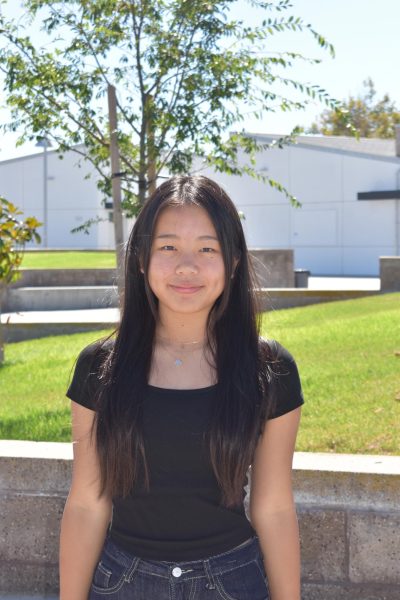Tables full of parents listened attentively to Alex Kun (11) as he described the difficulties of balancing school and social life, while managing the stress that his academically rigorous classes bring. He discussed this as a student representative on a panel for What I Wish My Parents Knew (WIWMPK) on Tuesday. In collaboration with the Westview PTSA Mental Health and Wellness committee, parents were invited to attend the forum and learn about academic pressure, social media, finding balance beyond the classroom, understanding alcohol, drugs, and vaping, and communicating with their teens.
PUSD students across all grades and backgrounds gathered to speak on their school experience and how that affects their relationships with their parents and guardians.
As one of the students who spoke on the academic pressure panel, Kun said he hopes to not only share his own views but also gain insight into parents’ perspectives regarding academics.
“I chose to join the panel because I thought it would be a great opportunity to broaden my worldview,” Kun said. “I’ve come to the realization that high-schoolers are naive in their knowledge of what’s beneficial to their success and happiness. I thought that by sharing what I’ve experienced as a student and talking to other parents could help me develop a better sense of the world.”
Kun said he thinks that the difference between how parents and students view academics and balancing school stems from their contrasting experiences.
“Parents simply aren’t living the life students do,” Kun said. “They see it as something long-term, while students focus on short-term stress and expectations. I think parents underestimate or don’t fully understand the social comparison that comes with academic pressure, but I still see where they’re coming from. They nonetheless want the best for their children, even if it feels overwhelming.”
Chloe Patty (10), a student who took part in the Communicating With Your Teens panel, said participating in the event opened her eyes to parents’ views of teenagers.
“I got to listen to how parents view teenagers and the possible struggles they face, as well as informing them of what students are experiencing and how they can support us,” Patty said. “I didn’t find it hard to talk about these topics because parents came for a reason: to gain insight on what their sons and daughters don’t normally share. At first, I was a bit nervous to talk to the parents, but once we started, my thoughts formed almost instantaneously.”
Kun said he shared a similar experience in the beginning, having a hard time speaking up about the pressure he feels, but as the event went on, he realized that the entire intention of the panel was to better connect students and parents.
“It was a little difficult opening up initially because there’s been a stigma around one’s relationship with their parents,” Kun said. “I think it’s hard to be vulnerable, but [the panel] definitely helped me understand the complex motives behind parents’ actions, and that they stem from care, not just control. Listening to others’ experiences helped me understand what matters in the long run. For students, this panel showed that parents are actively trying to lift their kids up, not hinder them.”
Patty said she wanted to speak in the panel because communication is crucial to maintaining and improving the bonds between parents and their children, even if having more serious conversations can be difficult.
“It’s important to talk about these topics to bridge the gap between parents and teens and create a more empathetic environment,” Patty said. “I believe parents view these topics differently than us because the challenges they faced when they were our age are different than the struggles we have to endure now, making it difficult to put themselves in our shoes.”
Over the years, Kun has come to realize that parents have the best intentions for their children, but communication is key.
“Ultimately, parents just want the best for you,” Kun said. “I’ve realized that my parents have a bigger-picture view of the world, and that it’s my own naivete that pushes me to combat what really might have been good for me. Talking to parents about academic pressure helps them understand where the students’ perspective comes from, and how they can adapt to that.”
Through her participation in the event, Patty said she came to the realization that parents may not show it well, but they do try very hard to be reliable support systems for their children.
“I realized change starts with honest communication like this,” Patty said. “I used to think parents put minimal effort into understanding us, but after hearing different conversations, parents are trying just as hard as we are.”


![Siddhi Bhavsar (10) [left] and Riddhi Bhavsar (10) [right] carry the NJROTC flag, Sept 13. The annual Poway Rotary Parade gave the unit the chance to represent Westview.](https://wvnexus.org/wp-content/uploads/2025/09/DSC00628-1200x900.jpg)
![Jolie Baylon (12), Stella Phelan (12), Danica Reed (11), and Julianne Diaz (11) [left to right] stunt with clinic participants at halftime, Sept. 5. Sixty elementary- and middle-schoolers performed.](https://wvnexus.org/wp-content/uploads/2025/09/IMG_1948-800x1200.png)
